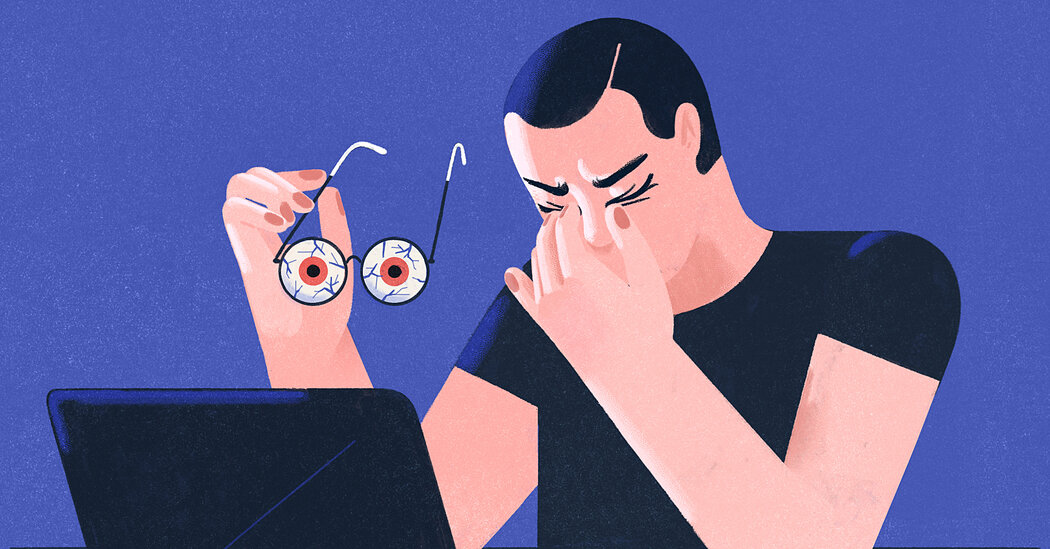
How does the eye stay lubricated?
Think of the tear film that coats and lubricates the eye as a three-layer sandwich, with each layer produced by different glands. The meibomian glands in the upper and lower eyelids create an oily outer layer that stabilizes the film. If the film breaks up too quickly, blurry vision is the likely result. Next are two sets of lacrimal glands that supply the watery tears. Innermost is the mucin layer that attracts water and helps to spread the tear film over the surface of the cornea. Even if the tear supply is adequate, a mucin deficiency can impede wetting of the cornea and damage its surface.
Both the meibomian and lacrimal glands have receptors for the sex hormones, androgen and estrogen, and a decrease in hormone levels likely explains why dry eye problems increase in women at menopause and in men who are treated with anti-androgen therapy for prostate cancer. Indeed, the most common cause of dry eye is evaporation of moisture from the eyes from dysfunction of the meibomian glands that results in instability of the tear film.
Sometimes the attempted solution, like using multiple-use eye drops that contain preservatives, can actually make eye irritation worse. I ended up with chronically red eyes after using such drops, and the problem soon resolved when I switched to single-use lubricants that were preservative-free. While single-dose eye drops are only approved for a one-time use, Dr. Udell said that it’s usually safe to use them for up to two days if you want to cut down on cost and waste, as long as the tip isn’t touched and is covered after each use.
Medications that treat other conditions can interfere with adequate tear production. Common culprits include antihistamines, beta blockers, oral contraceptives, diuretics and drugs used to treat Parkinson’s disease, anxiety disorders, asthma, chronic obstructive pulmonary disease (C.O.P.D.) and abnormal heart rhythms.
What can you do to relieve dry eyes?
Environmental conditions that can exacerbate dry eye problems include smoky or excessively dry air, which can result from indoor heating and air conditioning. Long before the pandemic, I began wearing eyeglasses when outdoors, especially on windy days and always when riding my bicycle, to protect my eyes from dryness and grit. A variety of glasses are available to block out wind, glare and airborne irritants.
If you swim, be sure to wear goggles to prevent salty or chemically treated water from irritating your eyes.
Another practical measure that Dr. Udell emphasized is applying warm compresses to the eyelids morning and night to assist meibomian gland function. I gently wash my eyelids from the nose outward with a warm washcloth every night. Repeat the washcloth cleanse if you wake up in the morning with “sleep in your eyes,” then apply artificial tears.
